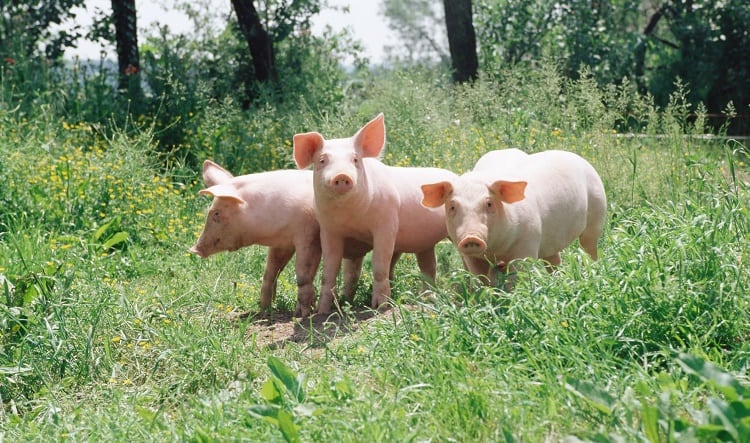Investigations by the group found instances of fresh fruit and vegetables with no visible origin labelling on the shelf edge or products themselves across Sainsburys, Asda and Aldi. Under the current origin labelling rules, it is a requirement for there to be a country or place of origin label on meat, fish, fresh fruit and vegetables, as well as honey and wine.
In a survey of 2,011 UK adults, only half (51%) of shoppers found the current origin information presented on groceries to be helpful. Almost two-thirds of respondents (64%) said they would be more likely to buy a product labelled ‘British’ than one that was not.
Conflicting information
Despite these demands from consumers, Which? found confusing or conflicting information on store shelves. Packs of sausage rolls in Lidl state they are made with a mix of UK and non-UK pork, while Aldi’s Crestwood bacon and cheese wraps sported Union Jacks and ‘made in Britain’ labels, despite the fact they were made with pork from the EU.
Ele Clark, Which? retail editor, said: “Which? research has uncovered a surprising amount of inconsistent and misleading food labelling, suggesting that – even when the rules are properly adhered to – consumers aren't getting all the information they want about their food's origin.
“Shoppers want to know where their food comes from for multiple reasons, including supporting British suppliers and making more sustainable choices.
Informed choices
Which? urged for improvements to origin labelling if it is to properly help shoppers make ‘informed decisions that align with their values’. It also called for manufacturers to make sure loose fruit and veg is better labelled and consider the voluntary labelling of more processed meat products.
Clark added: “Supermarkets should particularly focus on labelling loose fruit and vegetables more clearly, but manufacturers and retailers should also consider providing origin information on more processed meat products so shoppers are armed with the information they need to make informed choices.”
Meanwhile, more than half of people with food allergies have had an allergic reaction due to mislabelling or unclear food packaging, a GS1 UK study has uncovered.





